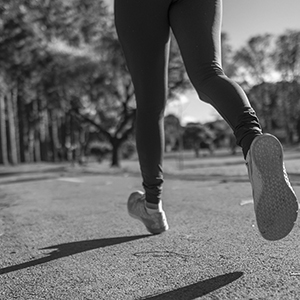Suppression of tumorigenicity 2 after exercise: a systematic review

Submitted: March 9, 2021
Accepted: July 12, 2021
Published: August 10, 2021
Accepted: July 12, 2021
Abstract Views: 1505
PDF: 581
Publisher's note
All claims expressed in this article are solely those of the authors and do not necessarily represent those of their affiliated organizations, or those of the publisher, the editors and the reviewers. Any product that may be evaluated in this article or claim that may be made by its manufacturer is not guaranteed or endorsed by the publisher.
All claims expressed in this article are solely those of the authors and do not necessarily represent those of their affiliated organizations, or those of the publisher, the editors and the reviewers. Any product that may be evaluated in this article or claim that may be made by its manufacturer is not guaranteed or endorsed by the publisher.
Similar Articles
- Francesca Gatta, Yama Haqzad, George Gradinariu, Pietro Giorgio Malvindi, Zubair Khalid, Rona L. Suelo-Calanao, Nader Moawad, Aladdin Bashir, Luke J. Rogers, Clinton Lloyd, Bao Nguyen, Karen Booth, Lu Wang, Nawwar Al-Attar, Neil McDowall, Stuart Watkins, Rana Sayeed, Saleh Baghdadi, Andrea D’Alessio, Maria Monteagudo-vela, Jasmina Djordjevic, Matej Goricar, Solveig Hoppe, Charlotte Bocking, Azar Hussain, Betsy Evans, Salman Arif, Christopher Malkin, Mark Field, Kully Sandhu, Amer Harky, Ahmed Torky, Mauin Uddin, Muhammad Abdulhakeem, Ayman Kenawy, John Massey, Neil Cartwright, Nathan Tyson, Niki Nicou, Kamran Baig, Mark Jones, Firas Aljanadi, Colum G. Owens, Tunde Oyebanji, Joseph Doyle, Mark S. Spence, Paul F. Brennan, Ganesh Manoharan, Taha Ramadan, Sunil Ohri, Mahmoud Loubani, Redo aortic valve replacement versus valve-in-valve trans-catheter aortic valve implantation: a UK propensity-matched analysis , Monaldi Archives for Chest Disease: Vol. 94 No. 1 (2024)
- Francesco Giallauria, Lucrezia Piccioli, Giuseppe Vitale, Filippo M. Sarullo, Exercise training in patients with chronic heart failure: A new challenge for Cardiac Rehabilitation Community , Monaldi Archives for Chest Disease: Vol. 88 No. 3 (2018)
- Roberto F.E. Pedretti, Francesco Fattirolli, Raffaele Griffo, Marco Ambrosetti, Elisabetta Angelino, Silvia Brazzo, Ugo Corrà , Nicolò Dasseni, Pompilio Faggiano, Giuseppe Favretto, Oreste Febo, Marina Ferrari, Francesco Giallauria, Cesare Greco, Manuela Iannucci, Maria Teresa La Rovere, Mario Mallardo, Antonio Mazza, Massimo Piepoli, Carmine Riccio, Simonetta Scalvini, Luigi Tavazzi, Pier Luigi Temporelli, Gian Francesco Mureddu, Cardiac Prevention and Rehabilitation “3.0â€: From acute to chronic phase. Position Paper of the ltalian Association for Cardiovascular Prevention and Rehabilitation (GICR-IACPR) , Monaldi Archives for Chest Disease: Vol. 88 No. 3 (2018)
- Marinella Sommaruga, Elisabetta Angelino, Paola Della Porta, Mara Abatello, Giacomo Baiardo, Gianluigi Balestroni, Ornella Bettinardi, Edward Callus, Chiara Ciracì, Ombretta Omodeo, Claudia Rizza, Paolo Michielin, Marco Ambrosetti, Raffaele Griffo, Roberto F.E. Pedretti, Antonia Pierobon, Best practice in psychological activities in cardiovascular prevention and rehabilitation: Position Paper , Monaldi Archives for Chest Disease: Vol. 88 No. 2 (2018)
- Edoardo Sciatti, Enrico Vizzardi, Dario S. Cani, Assunta Castiello, Ivano Bonadei, Daria Savoldi, Marco Metra, Antonio D'Aloia, Kounis syndrome, a disease to know: Case report and review of the literature , Monaldi Archives for Chest Disease: Vol. 88 No. 1 (2018)
- Samuele Baldasseroni, Alessandra Pratesi, Francesco Orso, Claudia Di Serio, Alice Foschini, Andrea Giosafat Marella, Nadia Bartoli, Mauro Di Bari, Stefano Fumagalli, Niccolò Marchionni, Francesca Tarantini, Epicardial adipose tissue and insulin resistance in patients with coronary artery disease with or without left ventricular dysfunction , Monaldi Archives for Chest Disease: Vol. 80 No. 4 (2013): Cardiac Series
- Pierfranco Terrosu, Aspirin use for primary prevention in elderly patients , Monaldi Archives for Chest Disease: Vol. 84 No. 1-2 (2015): Cardiac series
- Ugo Corrà , Massimo Pistono, Alessandro Mezzani, Marco Gnemmi, Franco Tarro Genta, Roberto Caruso, Pantaleo Giannuzzi, Cardiovascular prevention and rehabilitation for patients with ventricular assist device From exercise therapy to long-term therapy Part I: exercise therapy , Monaldi Archives for Chest Disease: Vol. 76 No. 1 (2011): Cardiac series
- Federica Ilardi, Fabio Magliulo, Giuseppe Gargiulo, Gabriele Giacomo Schiattarella, Giuseppe Carotenuto, Federica Serino, Marco Ferrone, Emanuele Visco, Fernando Scudiero, Andreina Carbone, Cinzia Perrino, Bruno Trimarco, Giovanni Esposito, Endovascular treatment of carotid artery stenosis: evidences from randomized controlled trials and actual indications , Monaldi Archives for Chest Disease: Vol. 76 No. 4 (2011): Cardiac series
- Marzia Vassalini, Andrea Verzeletti, Francesco De Ferrari, Standard of care and guidelines in prevention and diagnosis of venous thromboembolism: medico-legal implications , Monaldi Archives for Chest Disease: Vol. 84 No. 1-2 (2015): Cardiac series
You may also start an advanced similarity search for this article.

 https://doi.org/10.4081/monaldi.2021.1839
https://doi.org/10.4081/monaldi.2021.1839





